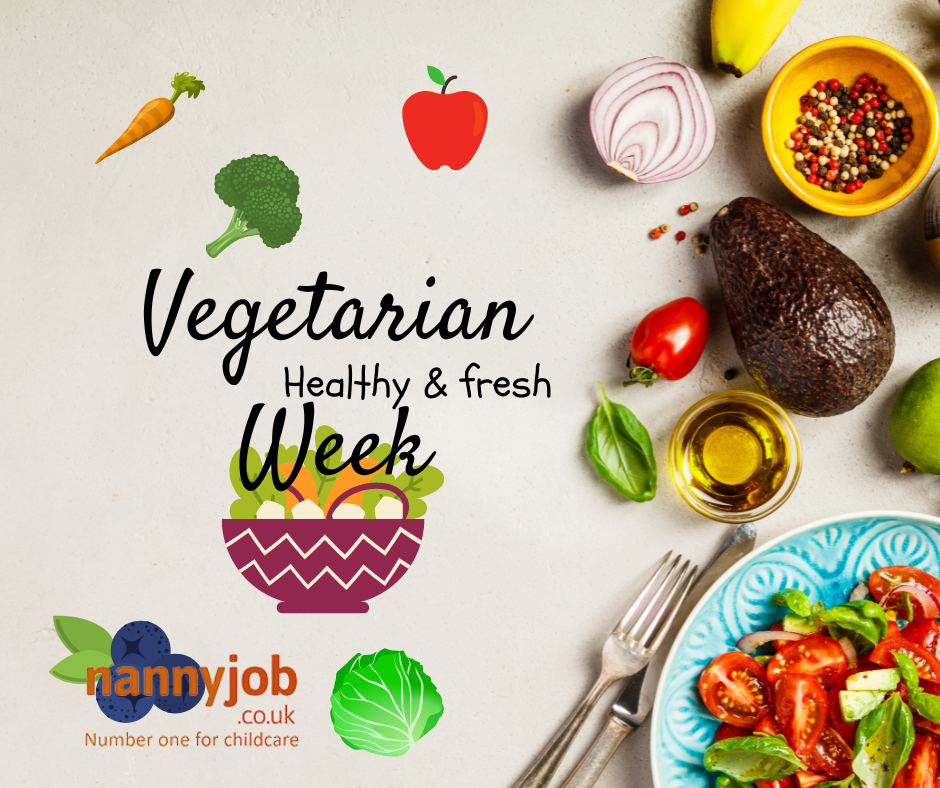Introduction
When a child expresses the desire to become a vegetarian, it can raise questions and concerns for parents, nannies, and childcarers. Is it a phase? Is it safe? How can we ensure they get all the nutrients they need? The good news is that with the right planning, a vegetarian diet can be healthy and fulfilling for children. National Vegetarian Week is a perfect time to explore how to support a child’s choice to go vegetarian and adapt their diet in a healthy way.
1. Start with a Conversation
If a child expresses the desire to become a vegetarian, start by having an open conversation about why they want to make this change. Understanding their motivation—whether it’s ethical, environmental, or a matter of personal preference—can help you support their choice more effectively.
2. Educate About Nutrition
It’s essential to ensure that a vegetarian child receives all the necessary nutrients. Educate them about the importance of protein, iron, calcium, vitamin B12, and omega-3 fatty acids, which are commonly found in meat. Discuss plant-based alternatives like beans, lentils, tofu, nuts, seeds, dairy products, and leafy greens. Involve them in meal planning to help them learn about balanced nutrition.
3. Gradual Transition
If the child is new to vegetarianism, consider making the transition gradually. Start by reducing meat consumption and incorporating more plant-based meals. This approach can help the child and the family adapt to the new diet and identify favorite vegetarian dishes.
4. Try New Recipes Together
Explore new vegetarian recipes together to keep meals exciting and diverse. Experiment with different cuisines and cooking methods. Make cooking fun by involving children in meal preparation; this can also increase their interest in eating a variety of vegetables and plant-based foods.
5. Monitor Nutritional Intake
Keep an eye on the child’s nutritional intake to ensure they’re getting the right balance of nutrients. Consider consulting a pediatrician or a dietitian who specialises in vegetarian diets for children to create a tailored meal plan.
Conclusion
Supporting a child’s choice to become a vegetarian can be a rewarding journey that encourages healthy eating habits and awareness. With careful planning, open communication, and a focus on balanced nutrition, a vegetarian diet can be a healthy and fulfilling choice for children.

